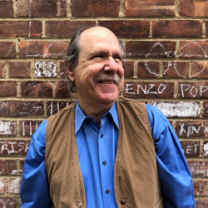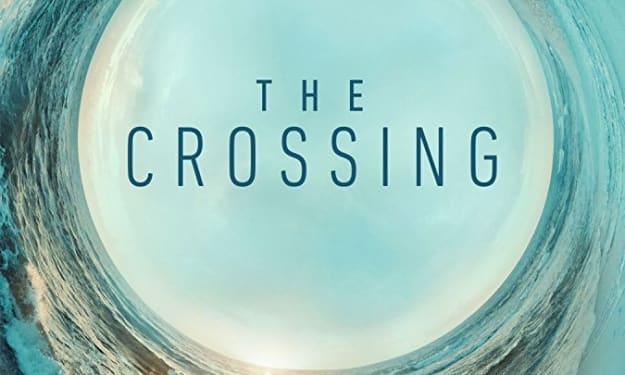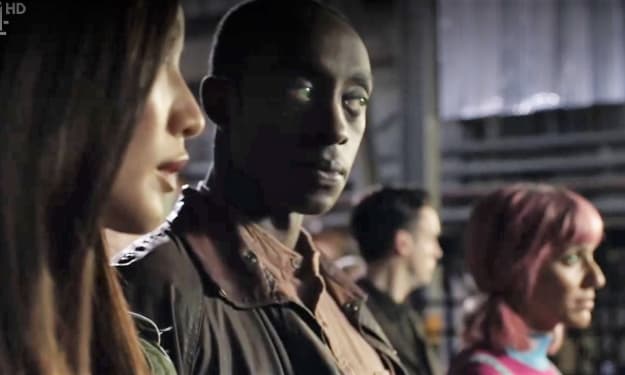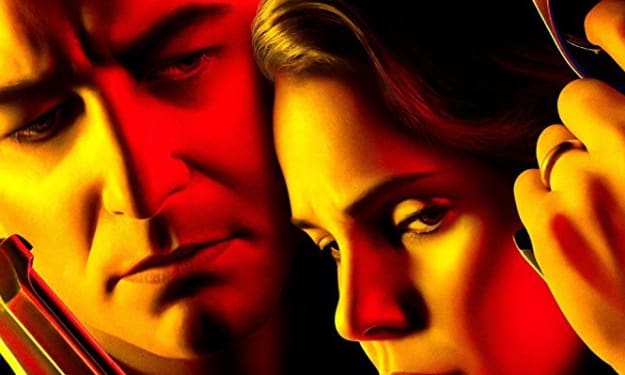
Paul Levinson
Bio
Novels The Silk Code & The Plot To Save Socrates; LPs Twice Upon A Rhyme & Welcome Up; nonfiction The Soft Edge & Digital McLuhan, translated into 15 languages. Best-known short story: The Chronology Protection Case; Prof, Fordham Univ.
Stories (696/0)
Review of 'Westworld' 2.9
It's a measure of how good an episode I'm reviewing is, that more than one apt title for the review springs to mind. That was eminently the case with Westworld 2.9 last night, which tied up at least a few powerful loose ends while introducing others. All in all, it stands as one of the top two or three episodes of the entire two-season series so far.
By Paul Levinson6 years ago in Futurism
Review of '12 Monkeys' 4.1-3
12 Monkeys was back last night for its 4th and concluding season on the SyFy Channel with three episodes (there will be three more Friday evenings of episodes). If these first three are any indication, we're in a for real treat in the weeks ahead. These three were not only intellectually daunting, like everything in the previous seasons, but about as tight and logically explicable as any I've seen in a series which delights in and seriously pokes every paradox it can, rather than shies away from or paper's over them. Since paradox is the ever-present, silent middle name of time travel, probing them, in a way that makes sense, is the best you can do in a story like this. And since time travel is my favorite genre, this means that what 12 Monkeys did last night is top-notch television of any kind.
By Paul Levinson6 years ago in Futurism
Review of 'Humans' 3.2
I thought the most significant part of the excellent Humans 3.2 last night was the discussion between Mia and Niska—each in her own way the most powerful and furthest evolved synth (though Max is pretty high up there, too)—with Mia pointing out to Niska that the synths are mortal, and will eventually wear out or down and, to put it right there out on the table, die, just like humans.
By Paul Levinson6 years ago in Futurism
Review of 'Westworld' 2.8
An exquisite, almost standalone episode 2.8 — much of it told in Lakota, and brilliantly performed by Zahn McClarnon (who was great in Fargo 2, but even better in Longmire) as Akecheta, who comes to realize his part of the Westworld is not the real world, is the "wrong world," and like Dolores devotes his life to getting out of there.
By Paul Levinson6 years ago in Futurism
Review of 'The Crossing' 1.10-11
The Crossing may have ended last night, if no network or streaming service gives it continuing life, which it eminently deserves, seeing as how these last two episodes redeemed or proved The Crossing's mettle as a time-travel narrative worth watching and continuing, with a classic time-travel slap-in-your-face turn of events. (Spoilers follow.)
By Paul Levinson6 years ago in Futurism
Review of 'Sense8' Season 2 Finale
The name of the 2 and 1/2 hour Season 2 finale of Sense8 on Netflix, Amor Vincit Omnia or Love Conquers All—or, more precisely, passionate, erotic love—was indeed the dominant theme of this powerful and joyful episode, though it inevitably had plenty of violent threads of human nature as well.
By Paul Levinson6 years ago in Futurism
Review of 'The Crossing' 1.9
Lots of important time-traveling things happened on The Crossing 1.9 last night, the last episode before the two-hour series finale this coming Saturday night (maybe season finale, if ABC comes to its senses, see a little more about this below).
By Paul Levinson6 years ago in Futurism
Review of 'The Americans' Finale
An exquisite, satisfyingly restrained, even beautiful finale to The Americans last night—a series which only in this, its sixth and final season, has become, in my view, one of the finest series ever on television. This is because, although the series started as gangbusters in its first year, and although it never lost the astonishing originality of its premise and first season, it meandered, almost got repetitive and stuck in a quagmire in subsequent years, only to reclaim the best that it was was and exceed it in this last season.
By Paul Levinson6 years ago in The Swamp
Review of 'The Crossing' 1.8
As seems to happen all too often when an announcement comes down that a series won't be renewed for another season, the remaining episodes just get better and better. If episode 1.8 on last night is any indication, that's just what's happened with The Crossing.
By Paul Levinson6 years ago in Futurism













